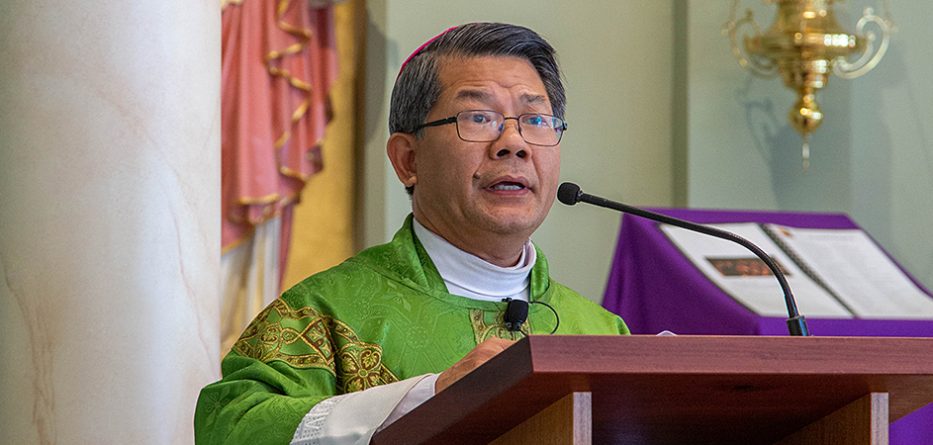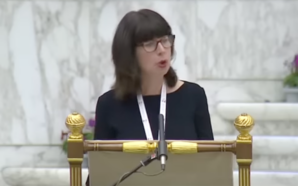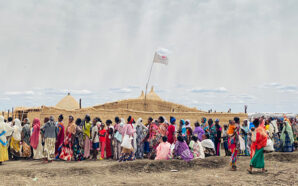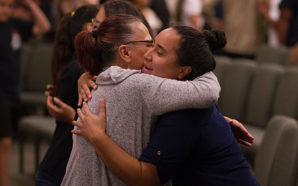Most Reverend Vincent Long Van Nguyen OFM Conv DD STL, Bishop of Parramatta
Homily for the 22nd Sunday in Ordinary Time Year B 2021
Readings: Deut 4:1-2; James 1:17-18,21-22,27; Mark 7:1-8, 21-23
29 August 2021
A new way of being and living in the world
Dear friends,
During the week, I watched an episode of Foreign Correspondent called Dead White Man’s Clothes. It is a confronting story about our culture of consumption, waste and disposal. Each day tons of old clothes, which people in rich countries like Australia discard, are shipped to Africa. Some of them are sorted and sold in markets. A lot of them, though, end up in rotting textile mountains and create a huge environmental disaster. That is the less glamorous side of our addiction to fashion that few of us realise. It is what Pope Francis calls the throwaway culture.
In the shadow of the pandemic, it is time for us to acknowledge the inherent flaws of this culture and reset our agenda for a healthier, more sustainable and more globally responsible way of life. If we want a different world, we must become a different people. We have a chance to rewire ourselves for a new existence, but we must begin to live in a new way. The pandemic could turn out to be a catalyst for a world transformed by a sense of united humanity, shared vision and deep solidarity instead of selfishness, individualism or narrow nationalism.
Scriptures this Sunday challenge us to be the people of love and compassion. Jesus confronts attitudes and practices that conform but do not transform. He calls us to rise to the challenge of new way of thinking and acting that brings about personal and collective transformation.
At first sight, Jesus appears to defend the indefensible. The Pharisees have criticised his disciples for failing to observe the purity law of hand washing before meals. It seems fair and square. It is a practice that we are well-accustomed to during the pandemic.
Yet instead of correcting his disciples, Jesus turns the table on the Pharisees. He condemns their superficial piety. He indicts the legalism, self-righteousness, and exclusivism that keeps them from truly loving God and loving their neighbours. What he calls out is the elevation of external observance over interior transformation, customs over values, ritual over compassion. What he grieves is the compulsive need to police the boundaries of religion, based on narrow definitions of purity and piety. It is this narrow legalism that clearly delineates who is “in” and who is “out,” who is clean and who is unclean, who deserves God’s favour and who doesn’t. It is a religion that draws a line in the sand and excludes those defined as unworthy of God’s love and compassion.
Jesus challenges all of us to a new way of living which is much more than adhering to the letter of the law. He invites us to go deeper. It is an invitation to practice what the apostle James in the second reading calls “pure religion.” It is a religion of right relationships. It is the interiorisation of who we believe God to be. It is the embodiment of God’s compassion for the widow, the orphan and the stranger. It is the realisation of the Kingdom vision of Jesus in the world, one that is more inclusive, fraternal, peaceful and life-flourishing for all.
Reflecting on the Gospel in the context of the pandemic, we must turn our attention to the way we live and operate. In a world that is threatened with pollution, depletion of precious resources, loss of biodiversity and of healthy conditions for life itself, can we go on living the way we are used to without a terrible legacy to our children? Is it time for us to think and act intergenerationally instead of the limited horizons we are enslaved to? Is the pandemic a time for a paradigm shift in order to move into a future of hope and abundance for all?
Dear friends,
Pope Francis exemplifies a Christian leader who refuses the trappings of his office. He challenges us to abandon our culture of comfort and go to the periphery, to be the voice of love and compassion for those deprived of it. We must be less of an enclosure for the virtuous but more an oasis for the weary and downtrodden. We must be less of an experience of exclusion and more of an encounter of radical love, inclusiveness and solidarity. The spirit is calling us anew into the business of being the sacrament of God’s love for the world.
Let us then persevere in faith, hope, love, goodness, humility as we await the working of grace and transformation in the Church. May we grow in our authentic discipleship and be the sacrament of God’s presence to the world.








